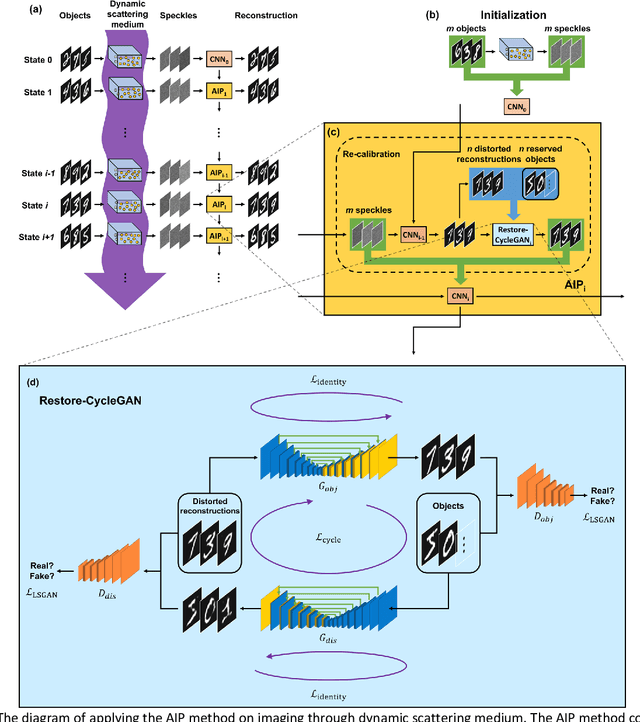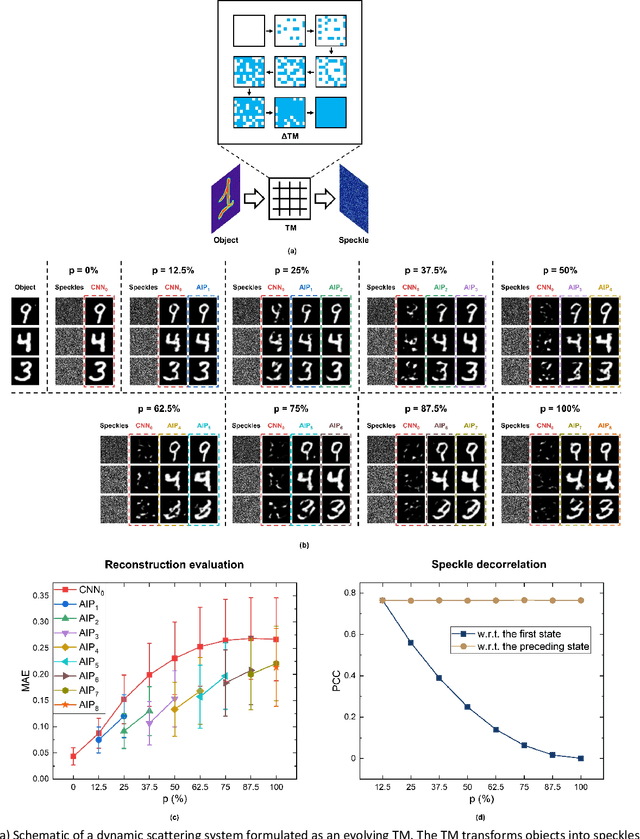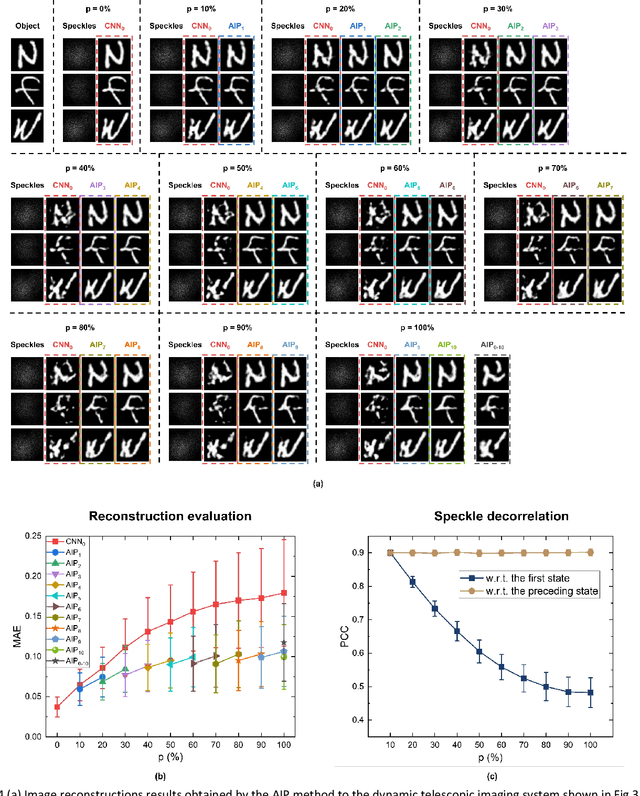Jose Enrique Antonio-Lopez
Adaptive Inverse Mapping: A Model-free Semi-supervised Learning Approach towards Robust Imaging through Dynamic Scattering Media
Aug 18, 2021



Abstract:Imaging through scattering media is a useful and yet demanding task since it involves solving for an inverse mapping from speckle images to object images. It becomes even more challenging when the scattering medium undergoes dynamic changes. Various approaches have been proposed in recent years. However, to date, none is able to preserve high image quality without either assuming a finite number of sources for dynamic changes, assuming a thin scattering medium, or requiring the access to both ends of the medium. In this paper, we propose an adaptive inverse mapping (AIP) method which is flexible regarding any dynamic change and only requires output speckle images after initialization. We show that the inverse mapping can be corrected through unsupervised learning if the output speckle images are followed closely. We test the AIP method on two numerical simulations, namely, a dynamic scattering system formulated as an evolving transmission matrix and a telescope with a changing random phase mask at a defocus plane. Then we experimentally apply the AIP method on a dynamic fiber-optic imaging system. Increased robustness in imaging is observed in all three cases. With the excellent performance, we see the great potential of the AIP method in imaging through dynamic scattering media.
 Add to Chrome
Add to Chrome Add to Firefox
Add to Firefox Add to Edge
Add to Edge